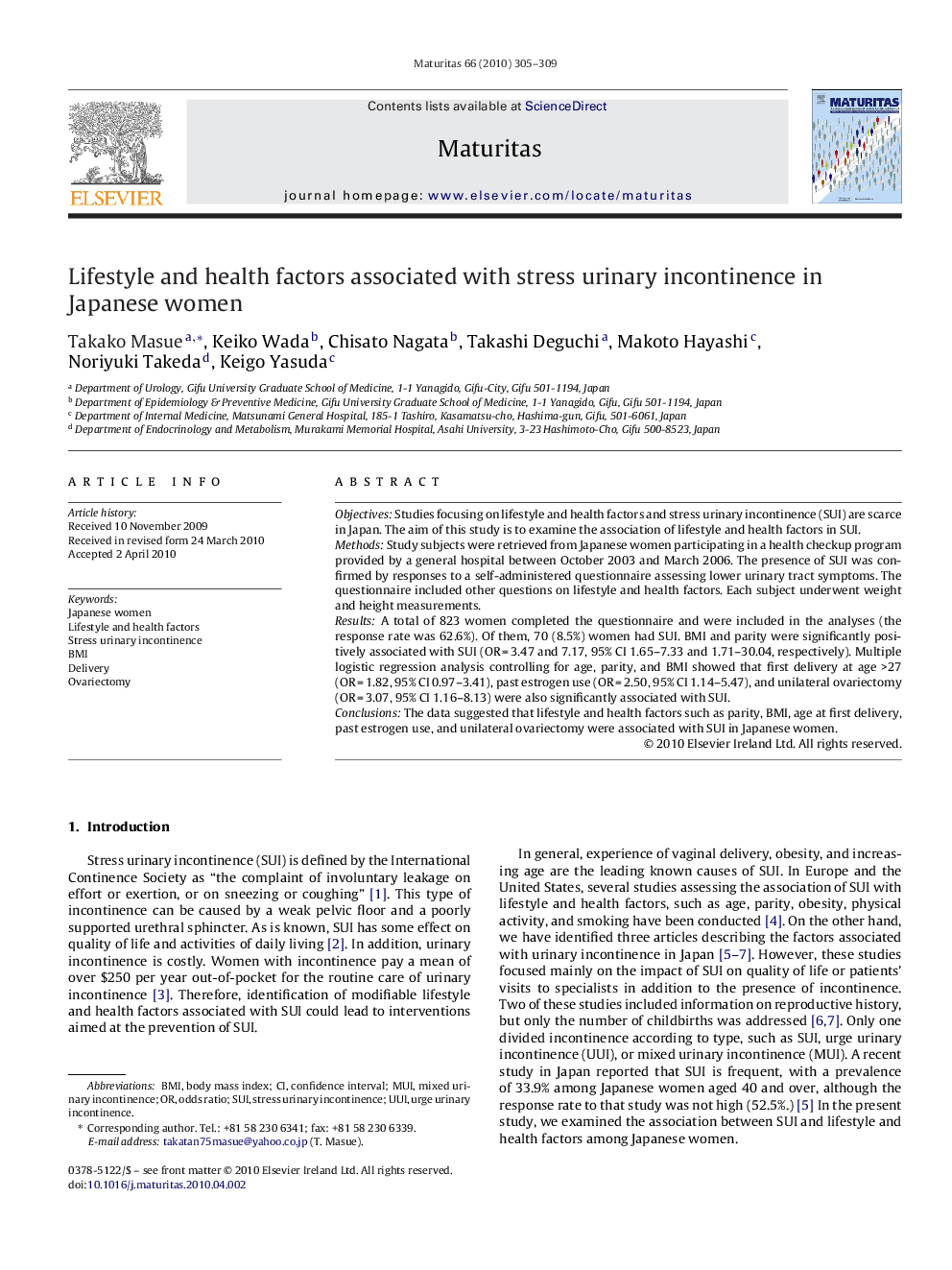| Article ID | Journal | Published Year | Pages | File Type |
|---|---|---|---|---|
| 1918208 | Maturitas | 2010 | 5 Pages |
ObjectivesStudies focusing on lifestyle and health factors and stress urinary incontinence (SUI) are scarce in Japan. The aim of this study is to examine the association of lifestyle and health factors in SUI.MethodsStudy subjects were retrieved from Japanese women participating in a health checkup program provided by a general hospital between October 2003 and March 2006. The presence of SUI was confirmed by responses to a self-administered questionnaire assessing lower urinary tract symptoms. The questionnaire included other questions on lifestyle and health factors. Each subject underwent weight and height measurements.ResultsA total of 823 women completed the questionnaire and were included in the analyses (the response rate was 62.6%). Of them, 70 (8.5%) women had SUI. BMI and parity were significantly positively associated with SUI (OR = 3.47 and 7.17, 95% CI 1.65–7.33 and 1.71–30.04, respectively). Multiple logistic regression analysis controlling for age, parity, and BMI showed that first delivery at age >27 (OR = 1.82, 95% CI 0.97–3.41), past estrogen use (OR = 2.50, 95% CI 1.14–5.47), and unilateral ovariectomy (OR = 3.07, 95% CI 1.16–8.13) were also significantly associated with SUI.ConclusionsThe data suggested that lifestyle and health factors such as parity, BMI, age at first delivery, past estrogen use, and unilateral ovariectomy were associated with SUI in Japanese women.
